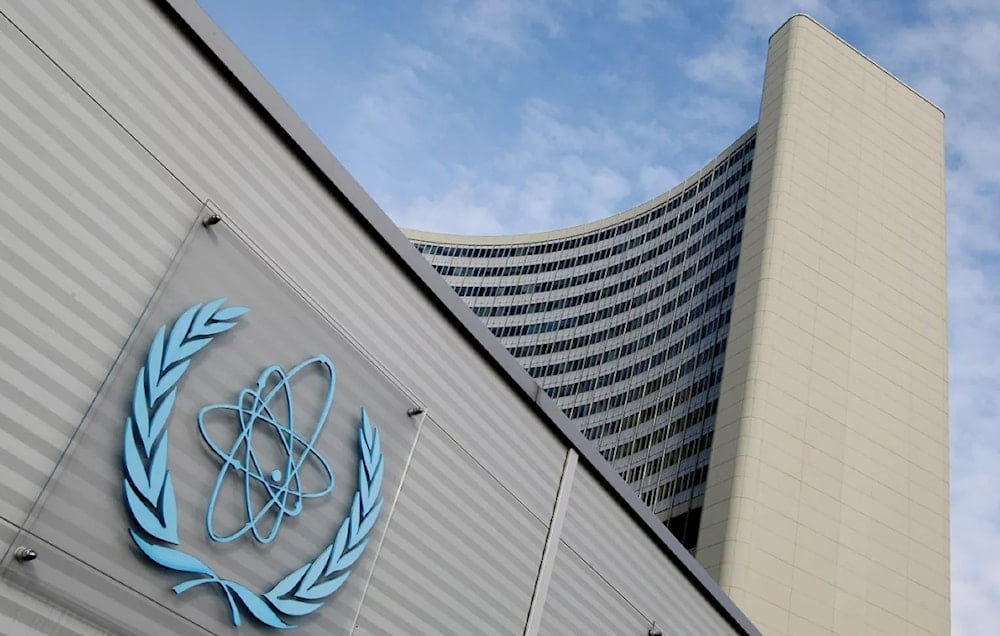Rosatom accuses IAEA of double standards and Western bias
Rosatom CEO Alexey Likhachev criticizes the IAEA Board of Governors for biased nuclear reporting, citing political influence from the West.
-

Headquarters of the International Atomic Energy Agency (IAEA), located in Vienna, Austria, undated. (AFP)
Russia’s state atomic energy corporation, Rosatom, has strongly criticized the International Atomic Energy Agency (IAEA) for what it described as biased and politically motivated reporting.
CEO Alexey Likhachev stated on Friday that the agency’s Board of Governors is heavily influenced by Western interests, leading to “double standards” in nuclear oversight.
“Certainly, I must say that we do not have smooth relations with the IAEA on the whole, to put it mildly,” Likhachev told reporters following talks with an IAEA delegation in Kaliningrad. “Of course, we often see double standards among a number of IAEA documents.”
He emphasized that divisions exist within the IAEA itself, with only Hungary, Switzerland, and Director General Rafael Grossi exhibiting what he called “objective” positions on nuclear matters.
“There is the Board of Governors, where the controlling stake, as we say, by almost 100% belongs to the collective West, and completely different opinions are expressed there. And therein lies the problem,” he noted.
Likhachev added that while Hungary and Switzerland have consistently affirmed the inadmissibility of strikes on nuclear infrastructure “regardless of origin,” most Board members focus solely on alleged attacks near Ukrainian nuclear facilities.
Zaporozhye NPP remains stable but threatened
The talks in Kaliningrad also focused on the security of the Zaporozhye Nuclear Power Plant (ZNPP), Europe’s largest nuclear facility, which has been under Russian control since late February 2022. Likhachev said the plant’s nuclear and radiation safety conditions remain “totally manageable and stable,” despite repeated Ukrainian shelling.
According to Likhachev, Ukrainian forces have intensified their attacks on civilian infrastructure and the ZNPP in recent days, damaging the power system "literally every night over the last four days." He stressed the importance of the continued presence of IAEA inspectors at the site to ensure transparency and keep the international community informed.
Meanwhile, Rosatom reaffirmed its willingness to cooperate with the IAEA to reach "non-politicized" solutions regarding the plant’s safety.
Likhachev also addressed the Iranian nuclear file, affirming Rosatom’s readiness to resolve any technical issues, provided that political decisions and multilateral agreements are in place.
Rosatom confirmed that nuclear cooperation with Iran will continue in several key areas, including the construction of additional nuclear power units, fuel supply for the first unit of the Bushehr plant, and joint research and development focused on the peaceful use of nuclear energy.
The corporation’s statements follow years of strategic collaboration between Moscow and Tehran in the field of civilian nuclear technology, as both sides seek to expand their partnership under growing scrutiny from Western institutions.
On a related note, after receiving the US proposal regarding the Iranian nuclear program, Tehran is now preparing a new counter-proposal, Ali Shamkhani, Political Advisor to Iranian Leader Sayyed Ali Khamenei, confirmed.
In an exclusive statement to Al Mayadeen on June 4, Shamkhani underlined that "Iran will never relinquish its natural rights." He also pointed out a key omission in the US offer, stating, “There is no mention whatsoever of lifting sanctions in the latest American proposal, even though the issue of sanctions is a fundamental matter for Iran.”

 3 Min Read
3 Min Read









